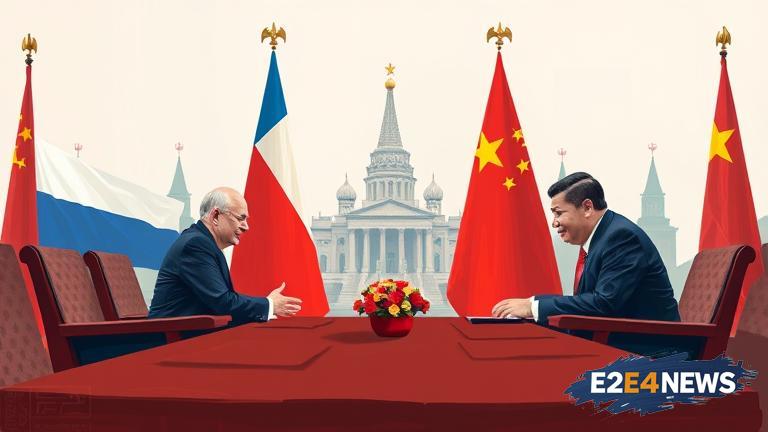In a significant move to strengthen their bilateral ties, Russia and China have been engaged in a series of high-level diplomatic meetings and economic agreements. The two nations have long been strategic partners, but their relationship has taken on added importance in recent years due to growing global uncertainty. With the United States and other Western countries imposing economic sanctions on Russia, China has emerged as a crucial partner for Moscow, providing a vital outlet for Russian energy exports and investment. Meanwhile, China’s Belt and Road Initiative (BRI) has provided a framework for cooperation between the two nations on large-scale infrastructure projects. The BRI aims to promote economic development and connectivity across Eurasia, and Russia has been an enthusiastic supporter of the initiative. In addition to economic cooperation, Russia and China have also been strengthening their security ties, with a focus on counter-terrorism and non-proliferation. The two nations have conducted joint military exercises and have cooperated on issues such as cybersecurity and artificial intelligence. Furthermore, Russia and China have been working together to promote a more multipolar world order, with a greater emphasis on the role of emerging economies and regional organizations. This has involved cooperation on issues such as global governance, climate change, and sustainable development. The Russia-China partnership has also been driven by a shared desire to reduce dependence on the US dollar and promote the use of national currencies in international trade. To this end, the two nations have established a payment system that allows for the use of the Russian ruble and the Chinese yuan in bilateral trade. In terms of specific agreements, Russia and China have signed a number of major deals in recent years, including a $400 billion gas supply contract and a $10 billion investment pact. The two nations have also cooperated on high-profile projects such as the Power of Siberia gas pipeline and the Yamal LNG project. Moreover, Russia and China have been working together to promote cultural and educational exchanges, with a focus on people-to-people diplomacy. This has involved the establishment of cultural centers, universities, and research institutions, as well as cooperation on issues such as tourism and youth exchange programs. Despite the many benefits of the Russia-China partnership, there are also challenges and complexities that need to be navigated. For example, the two nations have competing interests in certain regions, such as Central Asia and the Arctic. Additionally, there are concerns about the potential for China’s growing economic influence to undermine Russia’s position as a major power. Nevertheless, the Russia-China partnership remains a crucial component of both nations’ foreign policies, and is likely to continue to deepen and expand in the years ahead. As the global landscape continues to evolve, the partnership between Russia and China will be an important factor in shaping the course of international relations. With their strong bilateral ties and shared commitment to multipolarity, the two nations are well-placed to promote a more just and equitable world order. In conclusion, the Russia-China partnership is a significant and growing force in international relations, driven by a shared desire for economic cooperation, security, and global governance. As the world becomes increasingly interconnected, the partnership between Russia and China will play an important role in shaping the future of global affairs.





